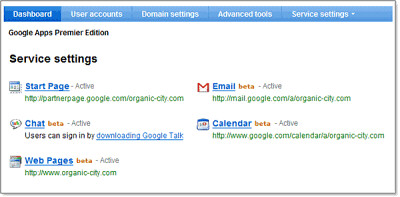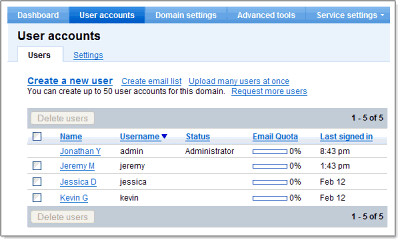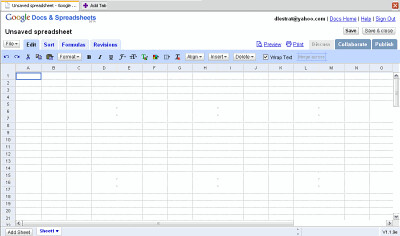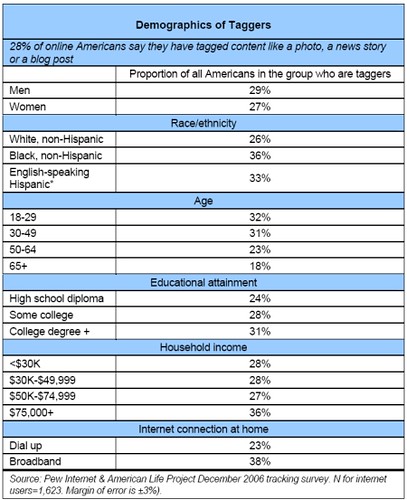- Google Apps Standard Edition: a free service that includes Gmail accounts (since enhanced for mobile access on BlackBerrys), a shared calendar, Google Talk instant messaging, access to Google Docs & Spreadsheets, and a Web page creator.
- Google Apps Premier Edition: a service designed for businesses of all sizes (read: targeted at the enterprise) which costs $50 a year per user and includes a 99.9% uptime guarantee for e-mail, additional e-mail storage (10GB per account instead of the 2GB limit of the Standard Edition), and new administration and business integration features.

Administrators can:
- Add, change, or remove user accounts
- Create the Start page layout for their user base where users can quickly preview their inbox, calendar, document list and other essential information related to their organization.
- Run a chat session
- Design a Web site
- Set up e-mail accounts
- Define mailing lists (you can include recipients outside your domain)
- Configure calendars

 Not surprisingly, Google Apps also comes with a broad set of APIs that use HTTP requests for a publishing and editing protocol in the spirit of the REST approach to web service interfaces. Most of these APIs allows client applications to view and update Google Apps constructs (e.g. spreadsheets) in the form of Google data API ("GData") feeds. GData leverages either of two standard XML-based syndication formats: Atom or RSS. Such APIs will strongly empower Google's partners and could overtime provide Google with strong competitive differentiation.
Not surprisingly, Google Apps also comes with a broad set of APIs that use HTTP requests for a publishing and editing protocol in the spirit of the REST approach to web service interfaces. Most of these APIs allows client applications to view and update Google Apps constructs (e.g. spreadsheets) in the form of Google data API ("GData") feeds. GData leverages either of two standard XML-based syndication formats: Atom or RSS. Such APIs will strongly empower Google's partners and could overtime provide Google with strong competitive differentiation.From the end user standpoint, Google Apps Premier Edition is all about collaboration, with 2 main positioning statements:
- Communicate and connect: This includes GMail, Google Talk and Google Calendar
- Collaborate and Publish: This includes Google Docs and Spreadsheet, the Start Page and Google Page Creator

This may explain some of the early broad adoption Google is claiming. Kevin Gough, product manager for Google Enterprise observes that:
CIOs are increasingly looking at what can they safely outsource to a trusted partner and what is a core function that is going to give them a competitive differentiator. They’re realizing that email and productivity tools and the staff that have to maintain that is not a competitive differentiator for them and they can redeploy that staff on things that are more core to their business.
Early in its release of Google Apps Premier Edition, Google claims that a number of large enterprises have commenced deployment and pilots of the online system that is looming as a threat to Microsoft's desktop-based office productivity dominance.
We have hundreds of thousands of small to medium businesses that have already done that," said Gough. "They’ve already switched their entire infrastructure over to Google Apps. We have just released the Premier Edition of Google Apps today and today we already have GE, Procter & Gamble, Prudential and Loreal. If on the first day of the launch we have two of the top 25 companies in the world. Imagine what’s going to happen in a month or a year from now.
The coming year will be interesting to watch and should create plenty of opportunities for those who can seize them.
 From a product management stand point, this is a great use of the
From a product management stand point, this is a great use of the 